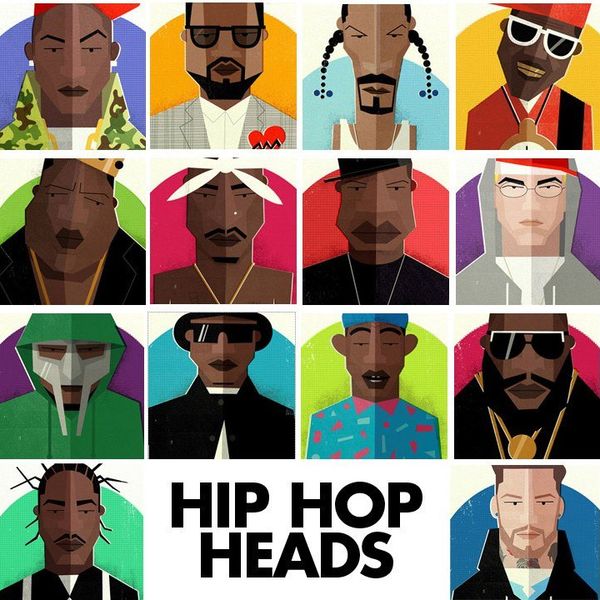Hip-hop has grown over the last several decades to be a global phenomenon. What started out as a mostly black art form used to describe and share the black experience within the black community has now expanded into almost all demographics and now encompasses multiple racial identities. Discussion about this however is highly contested. Some black artists believe that hip hop and rap are a purely black art form and that Asian and white artists are simply impersonators and should not be making hip hop because the essence of hip hop is the black experience (See "Paul Mooney On White People In Hip Hop).
To better understand this debate one first needs to differentiate between the two main avenues of hip hop that do sometimes collide. You have hip hop that focuses on very political and social issues and uses this medium as the way to express discontent and injustices within the society the artist exists within. Hip hop is a form of rebellion and protest within music and these types of songs encapsulate this. On the other hand there is purely entertainment hip hop that raps about cars, money, and girls and for the most part is just supposed to be listened to and not taken seriously as no real issues are tackled within the verses.
Starting with N.W.A's "Straight Outta Compton", the rappers try to convey part of the black experience, being the tough upbringing on the street and the gang activities that they are involved with. The black experience is often described as an upbringing of prejudice and hardship that only Black Americans can experience. Arguments can be made for poor white and asian Americans going through similar experiences, mainly the hardships, but the lack of prejudice (or as much prejudice in the case of Asian Americans) is the main argument against the experiences being the same.
Chance the Rapper also approaches the black experience with his song "Paranoia" from a different angle than N.W.A. N.W.A. has the very angry and rebellious feel that brings with it a sense of pride of participating in the hardships of being a black American. Almost glorifying the gang violence with the multiple references to how "hard" they are and how much they kill. "Paranoia" on the other hand tackles the other side of the black experience, being the prejudice. How he is scared for his life just because he is black and the horrible experiences of being in a poor black neighborhood. Chance talks about how the outside world just watches and lets all this happen and how black Americans are stuck in these situations with no way out except through rap. He ends the song with a plea for the rest of America to see what is going on and to help
"I know you scared
You should ask us if we scared too
If you was there
Then we'd just knew you cared too"
There are a lot of white rappers who fall into the second category of rap that I mentioned, where the rap mostly falls into purely entertainment purposes and this is what can anger black artists the most. White popular culture has a history of stealing from black musical culture dating back to 1920s dance music and Rock and Roll and they see this as just this generations stolen black culture. Some white artists however realize this and make a concerted effort to acknowledge this fact and even push back against it by acknowledging their privilege in not having gone through the black experience but adopting a musical style catered to talking about it.
Macklemore is one of these white artists and has addressed several serious social topics since he blew up with his hit "Thrift Shop." In his song, "white privilege 2" he raps about some of the stigma and issues with being white and wanting to support things like the Black Lives Matter movement and how by some groups he is pushed away because he has no clue about the black experience. In the song he acknowledges this and goes on to talk about the privilege that he has experienced and tries to reconcile with the black hip hop community and the black community as a whole.
Within the asian hip hop community some similar problems arise. They also have not had the black experience and for some artists this caused some issues in their early careers as they were facing backlash for imitating black culture (See "DJ Rhettmatic talks about Asian Americans and Hip Hop). Some Asian hip hop artists however see themselves as part of the black experience because they faced similar prejudices and hardships and have wholeheartedly adopted hip hop as their own too. This can be seen in Rich Chigga's song "Dat Stick" where you can see some quite obvious parallels to "Straight Outta Compton" with the emphasis on violence and a rough upbringing. He even embraces this idea all the way to his rapper name using "Chigga" a combination of the word "Chinese" and the n-word to fully embrace this identity.




















